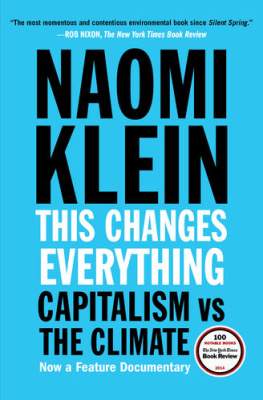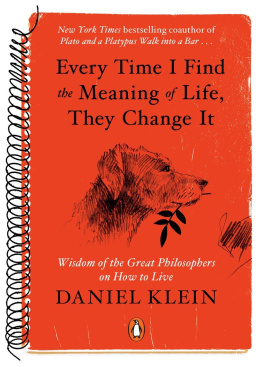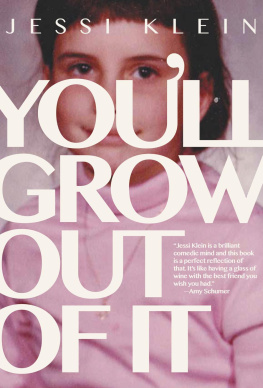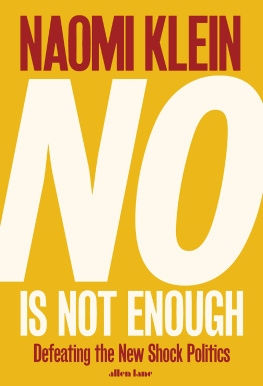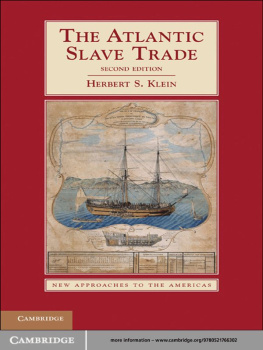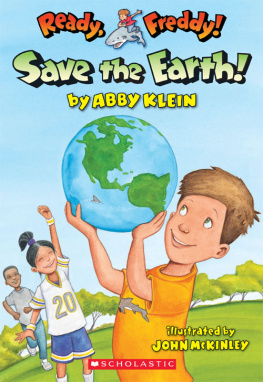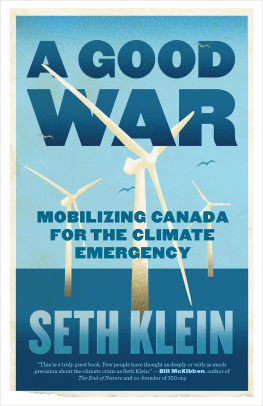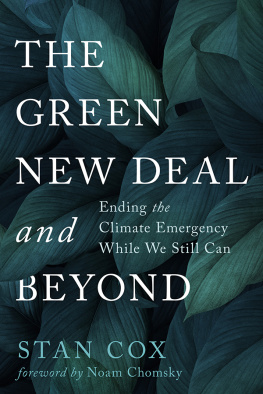Thank you for downloading this Simon & Schuster ebook.
Get a FREE ebook when you join our mailing list. Plus, get updates on new releases, deals, recommended reads, and more from Simon & Schuster. Click below to sign up and see terms and conditions.
CLICK HERE TO SIGN UP
Already a subscriber? Provide your email again so we can register this ebook and send you more of what you like to read. You will continue to receive exclusive offers in your inbox.
For
ARTHUR MANUEL
19512017
The future isnt cast into one inevitable course. On the contrary, we could cause the sixth great mass extinction event in Earths history, or we could create a prosperous civilization, sustainable over the long haul. Either is possible starting from now.
KIM STANLEY ROBINSON

INTRODUCTION: WE ARE THE WILDFIRE
ON A FRIDAY IN MID-MARCH 2019, they streamed out of schools in little rivulets, burbling with excitement and defiance at an illicit act of truancy. The little streams emptied onto grand avenues and boulevards, where they combined with other flows of chanting and chatting children and teens, dressed in leopard leggings and crisp uniforms and everything in between.
Soon the rivulets were rushing rivers: 100,000 bodies in Milan, 40,000 in Paris, 150,000 in Montreal.
Cardboard signs bobbed above the surf of humanity: THERE IS NO PLANET B! DONT BURN OUR FUTURE. THE HOUSE IS ON FIRE!
Some placards were more intricate. In New York City, a girl held up a lush painting of delicate bumble bees, flowers, and jungle animals. From a distance, it looked like a school project on biodiversity; up close, it was a lament for the sixth mass extinction: 45% OF INSECTS LOST TO CLIMATE CHANGE. 60% OF ANIMALS HAVE DISAPPEARED IN THE LAST 50 YEARS. At the center she had painted an hourglass rapidly running out of sand.
For the young people who participated in the first ever global School Strike for Climate, learning has become a radicalizing act. In early readers, textbooks, and big-budget documentary films, they learned of the existence of ancient glaciers, dazzling coral reefs, and exotic mammals that make up our planets many marvels. And then, almost simultaneouslyfrom teachers, older siblings, or sequels to those same filmsthey discovered that much of this wonder has already disappeared, and much of the rest of it will be on the extinction block before they hit their thirties.
But it wasnt only learning about climate change that moved these young people to march out of class en masse. For a great many of them, it was also living it. Outside the legislature building in Cape Town, South Africa, hundreds of young strikers chanted at their elected leaders to stop approving new fossil fuel projects. It was just one year ago that this city of four million people was in the clutches of such severe drought that three-quarters of the population faced the prospect of turning on the tap and having nothing come out at all. CAPE TOWN IS APPROACHING DROUGHT DAY ZERO , read a typical headline. Climate change, for these kids, was not something to read about in books or to fear off in the distance. It was as present and urgent as thirst itself.
The same was true at the climate strike on the Pacific island nation of Vanuatu, where residents live in fear of further coastal erosion. Their Pacific neighbor, the Solomon Islands, has already lost five small islands to rising water, with six more at severe risk of disappearing forever.
Raise your voice, not the sea level! the students chanted.
In New York City, ten thousand kids from dozens of schools found one another in Columbus Circle and proceeded to march to Trump Tower, chanting Money wont matter when were dead! The older teens in the crowd had vivid memories of when Superstorm Sandy slammed into their coastal city in 2012. My house got flooded and I was so confused, recalled Sandra Rogers. And it really made me look into it because you dont learn these things in school.
New York Citys huge Puerto Rican community was also out in force on that unseasonably warm day. Some kids arrived draped in the islands flag, a reminder of the relatives and friends still suffering in the aftermath of Hurricane Maria, the 2017 storm that knocked out electricity and water in large parts of the territory for the better part of a year, a total infrastructure breakdown that took the lives of roughly three thousand people.
The mood was fierce, too, in San Francisco, when more than a thousand student strikers shared stories of living with chronic asthma because of polluting industries in their neighborhoodsand then getting a whole lot sicker when wildfire smoke choked the Bay Area just a few months before the strike. The testimonies were similar at walk-outs all over the Pacific Northwest, where smoke from record-breaking fires had blotted out the sun for two summers running. Across the northern border in Vancouver, young people had recently succeeded in pressuring their city council to declare a climate emergency.
Seven thousand miles away, in Delhi, student strikers braved the ever-present air pollution (often the worst in the world) to shout through white medical masks, You sold our future, just for profit! In interviews, some spoke of the devastating floods in Kerala that killed more than four hundred people in 2018.
Australias coal-addled resource minister declared that The best thing youll learn about going to a protest is how to join the dole queue. Undeterred, 150,000 young people poured into plazas in Sydney, Melbourne, Brisbane, Adelaide, and other cities.
This generation of Australians has decided it simply cannot pretend that everything is normal. Not when, at the start of 2019, the South Australian city of Port Augusta had reached an oven-worthy 121F (49.5C). Not when half the Great Barrier Reef, the worlds largest natural structure made up of living creatures, had turned into a rotting underwater mass grave. Not when, in the weeks leading up to the strike itself, they had seen bushfires combine into a massive blaze in the state of Victoria, forcing thousands to flee their homes, while in Tasmania, wildfires destroyed old-growth rain forests that are unlike any ecosystem in the world. Not when, in January 2019, a combination of extreme temperature swings and poor water management led the entire country to wake up to apocalyptic images of the Darling River clogged with the floating carcasses of one million dead fish.
You have failed us all so terribly, said fifteen-year-old strike organizer Nosrat Fareha, addressing the political class as a whole. We deserve better. Young people cant even vote but will have to live with the consequences of your inaction.
There was no student strike in Mozambique; on March 15, the day of the global walkouts, the whole country was bracing for the impact of Cyclone Idai, one of the worst storms in African history, which drove people to take refuge at the tops of trees as the waters rose and would eventually kill more than one thousand people. And then, just six weeks later, while it was still clearing the rubble, Mozambique would be hit by Cyclone Kenneth, yet another record-breaking storm.
Wherever in the world they live, this generation has something in common: they are the first for whom climate disruption on a planetary scale is not a future threat, but a lived reality. And not in a few unlucky hot spots, but on every single continent, with pretty much everything unraveling significantly faster than most scientific models had predicted.
Oceans are warming 40 percent faster than the United Nations predicted just five years ago. And a sweeping study on the state of the Arctic published in April 2019 in Environmental Research Letters , led by renowned glaciologist Jason Box, found that ice in various forms is melting so rapidly that the Arctic biophysical system is now clearly trending away from its 20th Century state and into an unprecedented state, with implications not only within but also beyond the Arctic. In May 2019, the United Nations Intergovernmental Science-Policy Platform on Biodiversity and Ecosystem Services published a report about the startling loss of wildlife around the world, warning that a million species of animals and plants are at risk of extinction. The health of ecosystems on which we and all other species depend is deteriorating more rapidly than ever, said the Platforms Chair, Robert Watson. We are eroding the very foundations of economies, livelihoods, food security, health and quality of life worldwide. We have lost time. We must act now.
Next page
